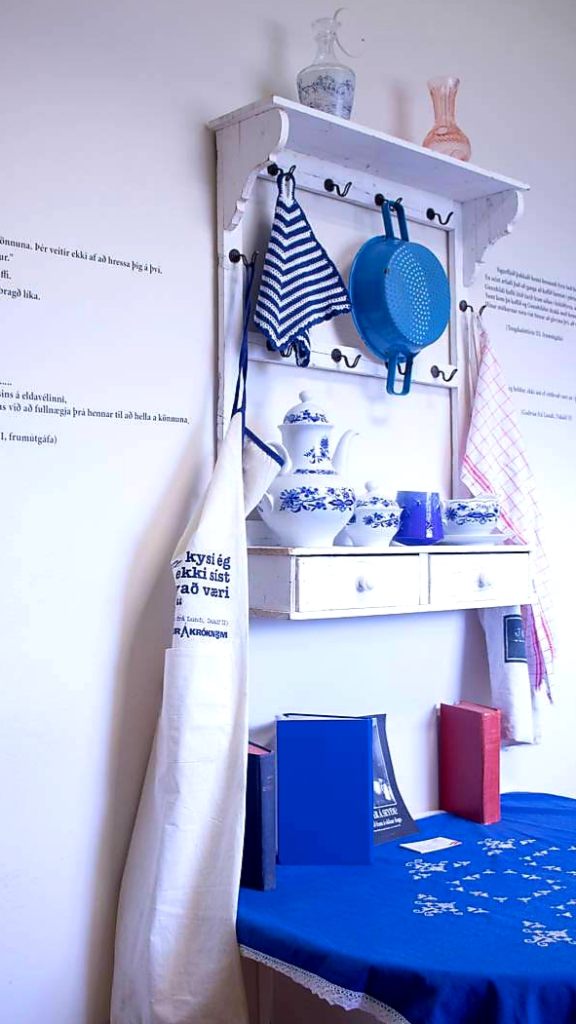Konubokastofan (The women’s book room) was founded by Rannveig Anna Jonsdottir and officially established as a non-profit entity on April 25 2013.
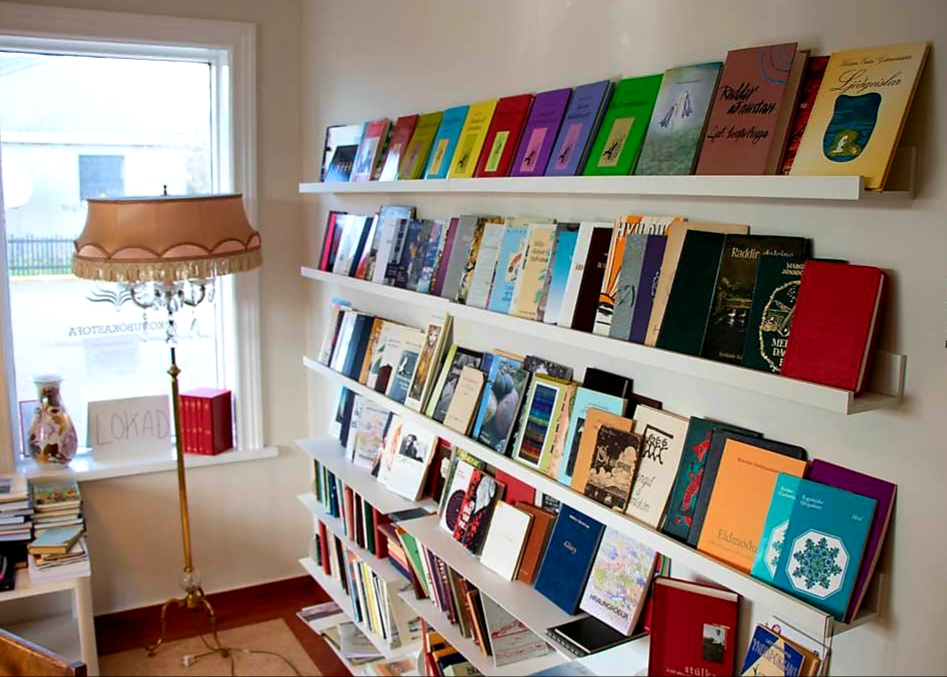
Anna conceived the idea for Konubokastofa while studying Icelandic literature at the University of Iceland. Helga Kress, a professor at the University, and Anna’s mentor, brought to her students’ attention the large amount of books, written by Icelandic women authors, that were out of print, obscure or difficult to obtain.
Many years later after post graduate studies in Denmark, ¨raising two daughters, and a lot of work collecting books, applying for grants and gathering interest from readers, writers and the community, Anna’s idea was brought to fruition.
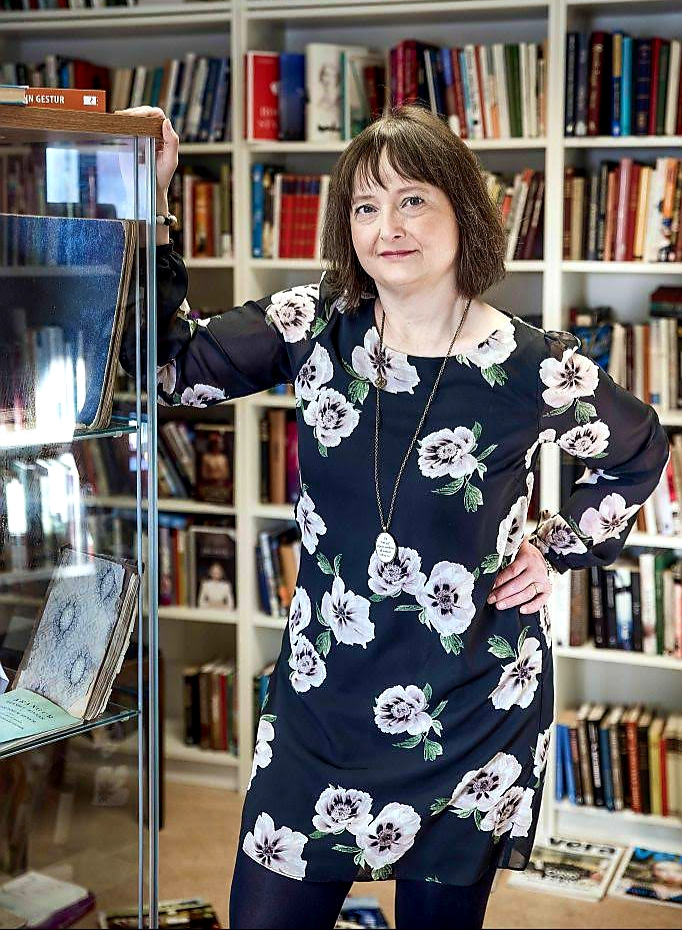
The name Konubokastofa was chosen as Anna wanted the collection to be displayed in a room (stofa) or a set of rooms, that offered the comfort of a living room, where guests could enjoy a cup of coffee while reading.
Konubokastofa is located in two small rooms (and a kitchen) in the historical building Blátún at Eyrarbakki, and shares the building with the local public library which is housed on the second floor.
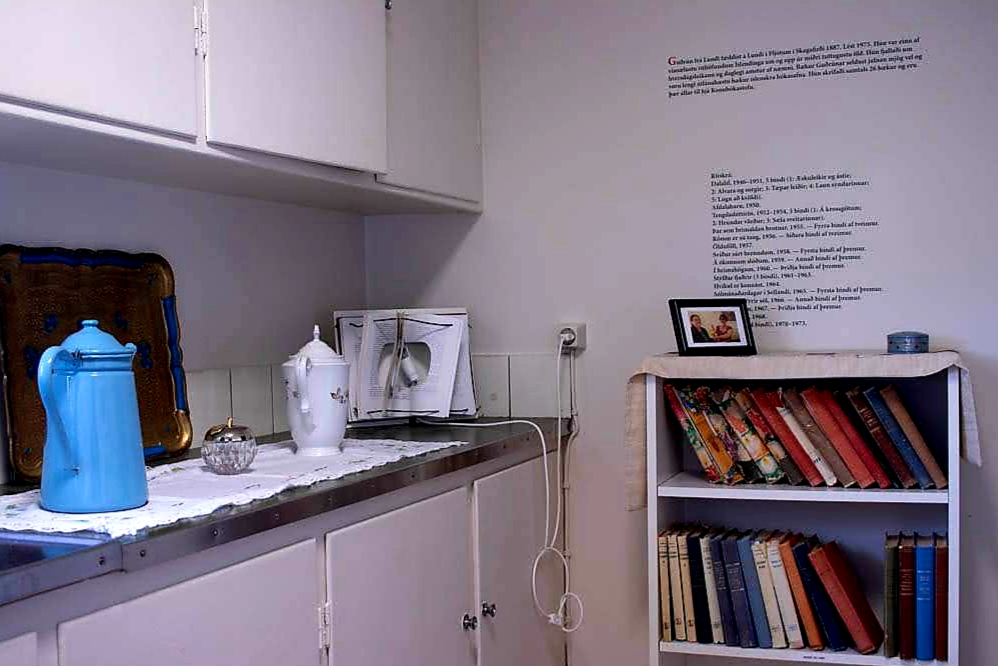
The purpose of Konubokastofa is to collect and display all published books written by Icelandic women in Icelandic and to keep an updated index, made available to the public on-line. Over 3000 books, written by over 600 authors are now on display at Konubokastofa. You may find an alphabetical list (by first name) of the writers here: http://konubokastofa.is/hofundar/. When books by Icelandic women are published they are added to the collection. Only one copy of each publication is kept at Konubokastofa, and the books are not lent out as a library would do. Although many of the more recently published books have been translated into foreign languages, the translations are not part of the collection.
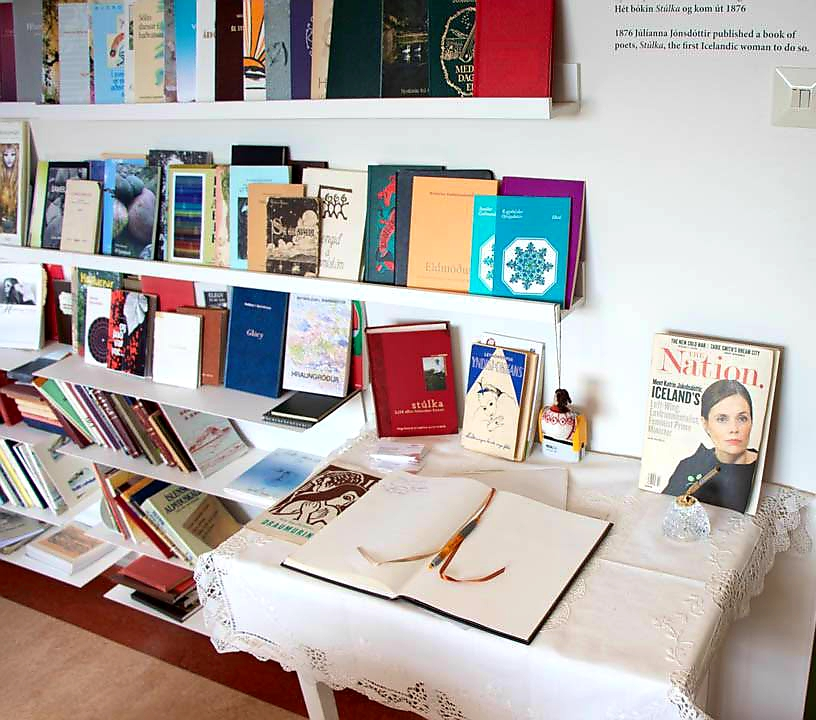
Icelanders and foreigners interested in Icelandic literature are welcome to visit the site at Eyrarbakki and to browse through the collection and read books during opening hours.
Konubokastofa is operated by volunteers, and is open twice a week during the winter and every afternoon in the summer (June through August). Arrangements may be made for off-hour visitations by groups.
